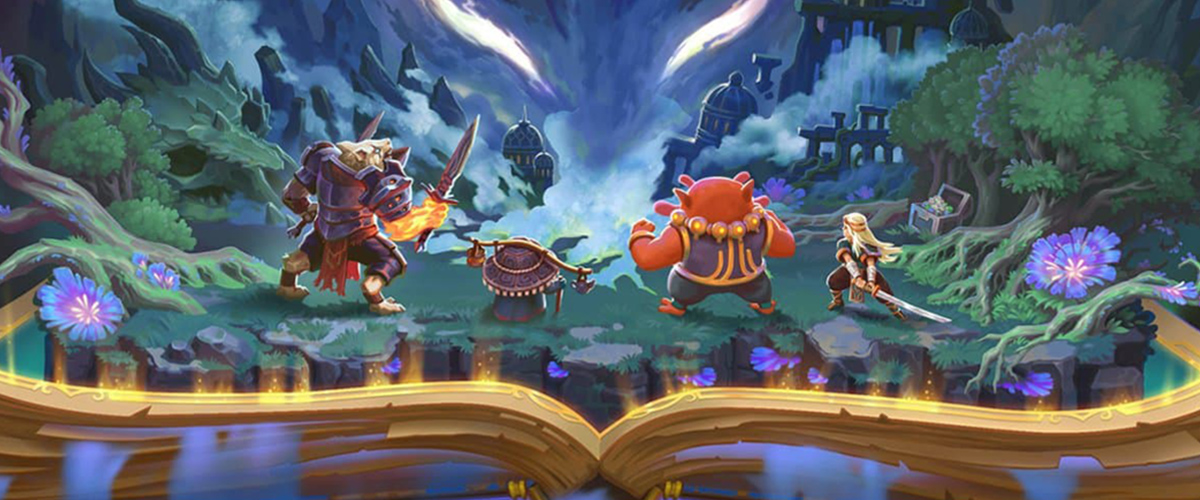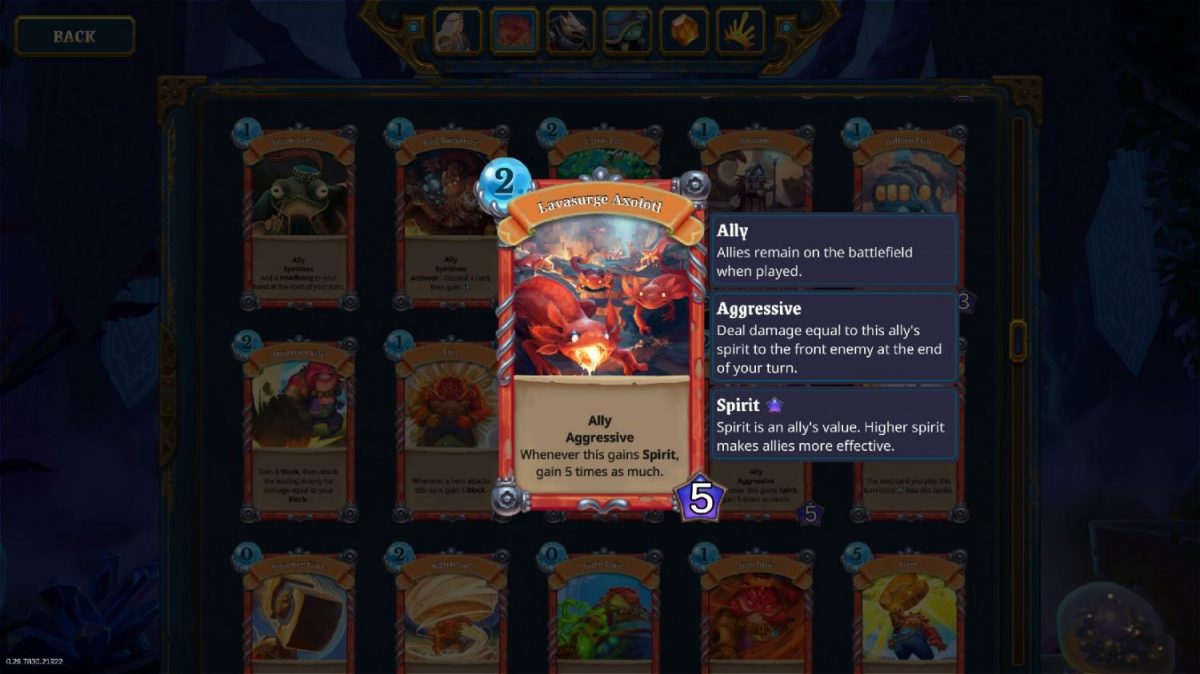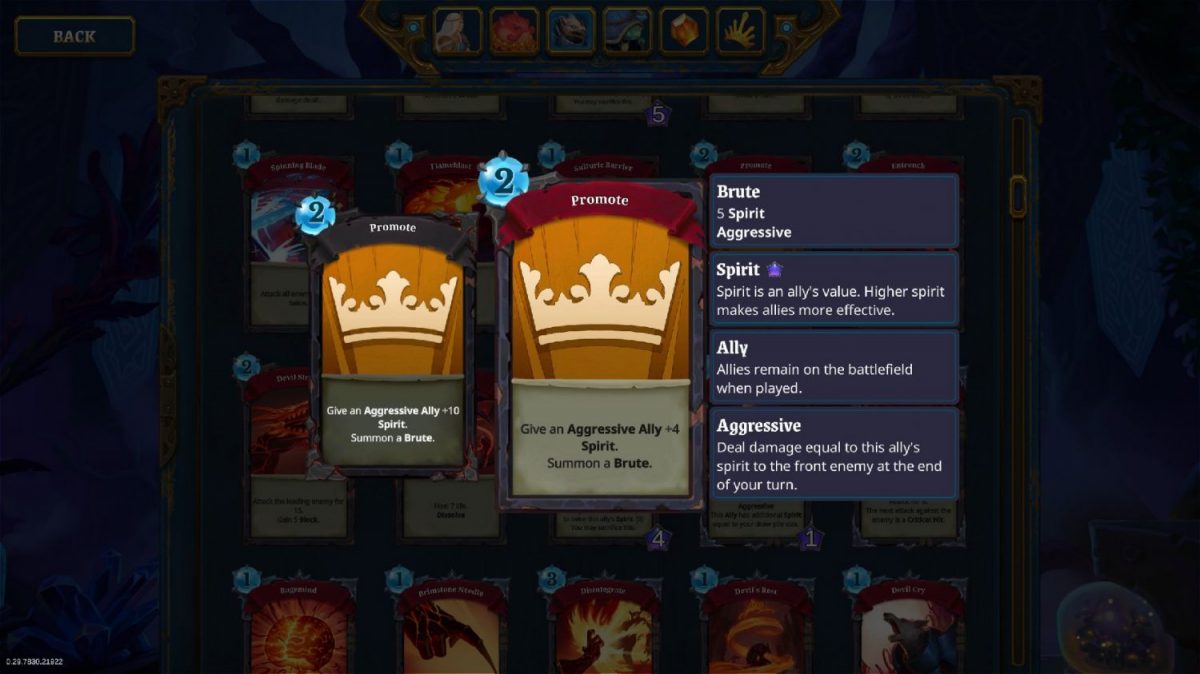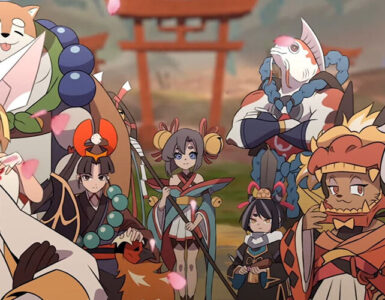It’s pretty hard to capture lightning in a bottle, twice, which effectively explains why game designer Richard Garfield hasn’t been able to recreate the same impact and cultural significance that one of his early games, Magic: The Gathering, has had over the years.
It hasn’t stopped him from making several attempts though, but it doesn’t look like his latest release, Roguebook, a roguelike card drafting/deck building game, which leverages heavily on Garfield’s renown, is going to change anything.
Featuring a difficulty scale that feels imbalanced at times, Roguebook has an odd way of determining if your runs will be successful or not pretty early in the early game. Relying a lot on randomness and pure luck, it ensures that players getting all the right cards will be rubbing their hands in glee as they start steamrolling through helpless opponents.
If this sounds familiar and you’d still want to give the game a shot, Roguebook does offer some pretty interesting mechanics, especially if you’ve gotten tired of Slay The Spire and Monster Train.
Built onto the world of Faeria, this multiplatform title started its life as a Kickstarter project and raised €66,810 to bring the game to life. In a similar vein to games in its genre, Roguebook has players starting off with an initial deck of cards. These come primarily in the form of attacks, defence, buffs and debuffs; variants to these card types are modified based on the heroes players pick at the beginning of the game. To fight enemies, players draw from the deck of cards and start off with 3 energy / mana points to take actions or cast spells. Once the deck is depleted, it gets reshuffled and players start over again. Players will go up against enemies each with their own unique predictable moveset and try their best to take down each other’s hit points by playing cards.
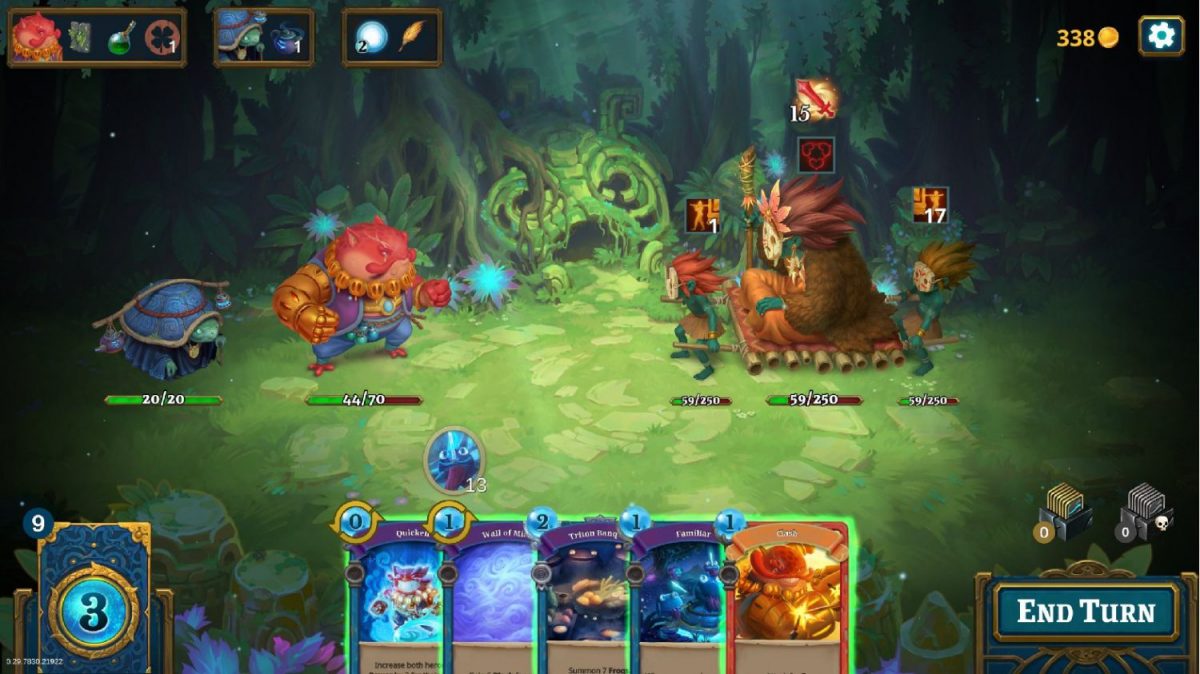
Bounded by their energy point pool, cards can cost from 0 energy points (essentially free to cast) to as high as 24 points (what??) to attack or defend. Upon a victory, players then earn gold where they can buy cards to add into their deck from locales on the map or via NPCs. This then presents players with three card options where they get to pick only one card from the pool. Herein is the constant cost / benefit analysis players need to make, do I pick a specific card so that I’m able to combo it with another down the line (which might never appear), or pick a more simple straightforward card that has immediate benefits. Such decisions are what define Roguebook and games of its like, from picking cards in battle to picking new cards to add to a deck. The exception here is that Roguebook allows players to snowball hard or never at all, so there’s very little middle ground.
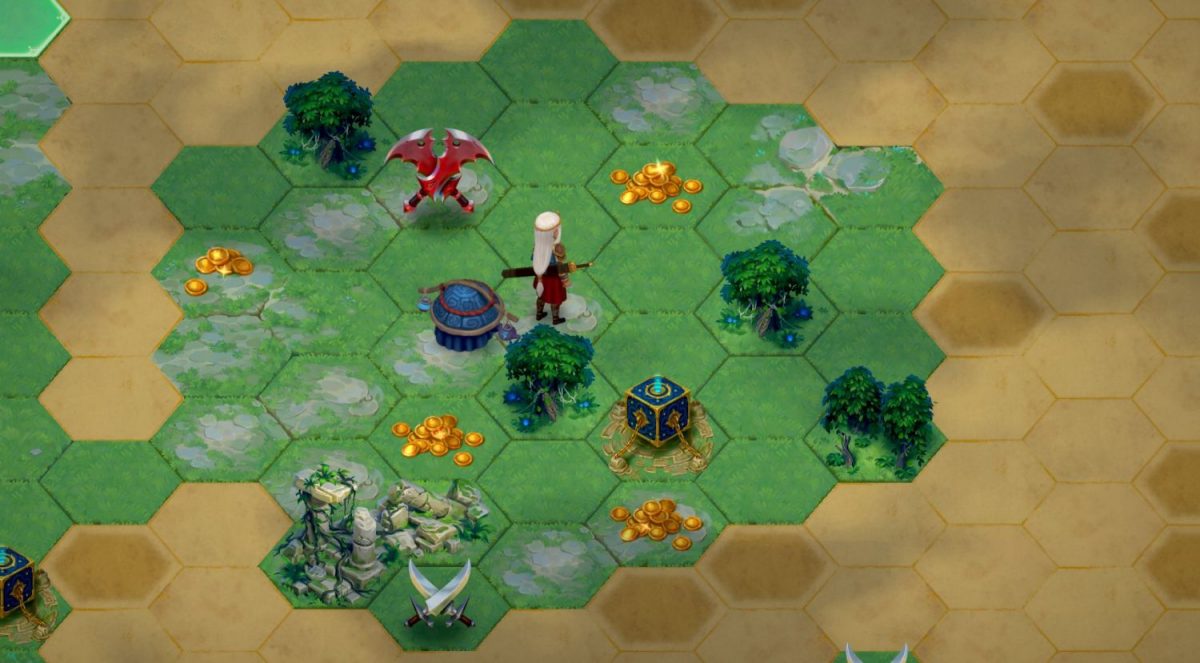
The game is broken up into 3 chapters each with a randomized end boss. Players would explore the chapter, trying their best to survive the world, and collect as many resources to improve and gain more cards, all while staying relatively healthy to tackle the chapter’s boss.
The basis of Roguebook is bounded down in a fair bit of probability (or luck). The only constant would be your starting heroes (total of 4) in which you’d need to pick two to begin the adventure. Each hero comes with their own unique set of cards which will help you build specific combos that serve as your abilities to traverse the world, and overcoming challenges.
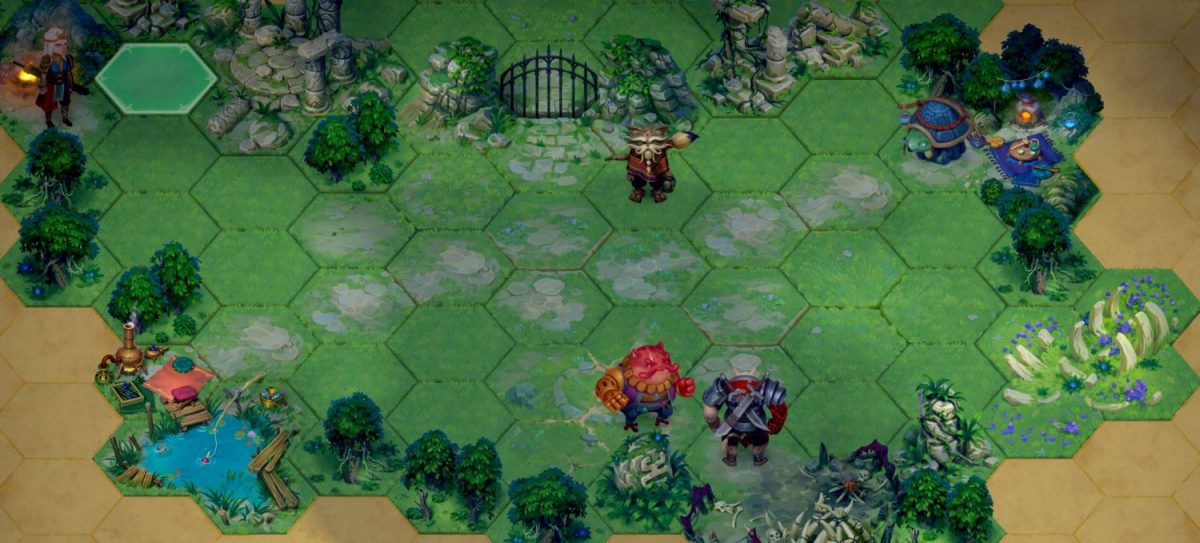
All players start off with Sharra by default, and she’s our vanilla fighter archetype. She affords a balanced playstyle with her cards with average damage and defence. Her strength lines in creating synergy between her cards which generate more energy points allowing for more cards to be played. Paired up with her would be Sorocco, who’s our tank in the game. He has access to strong defence cards and plenty of AOE damage as well. The drawback? His cards usually tend to have high cost and it does take some time to build up. Thankfully, if you’re able to clear the first chapter of the game, Seifer can be unlocked who affords one of the better playstyle which has consistent high damage and defence.
Seifer relies on a “rage” mechanic which unlocks new abilities when he has taken enough damage in a fight. Lastly, we have Aurora who falls into the spellcaster archetype, she brings plenty of buffs to the field and can hit pretty hard. However, she’s pretty soft which makes glass cannon gameplay a tricky prospect. This is largely due to the fact that from the get-go Roguebook holds no prisoners and regular enemies can make short work of the team if you’re not careful. Out of these four characters, players pick two at the start of the game and begin their adventure.
Depending on which playstyle gamers have an affinity to, there’s going to be a class for them. Consistent success was found with Sorocco / Seifer or Aurora as they afford consistent damage output with high defence. In such roguelike games there’s an inclination to adopt high risk high reward playstyles but Roguebook seems to like punishing players for that at times. This means that players, over time, are not encouraged to experiment as clear superior builds exist across all heroes and their cards.
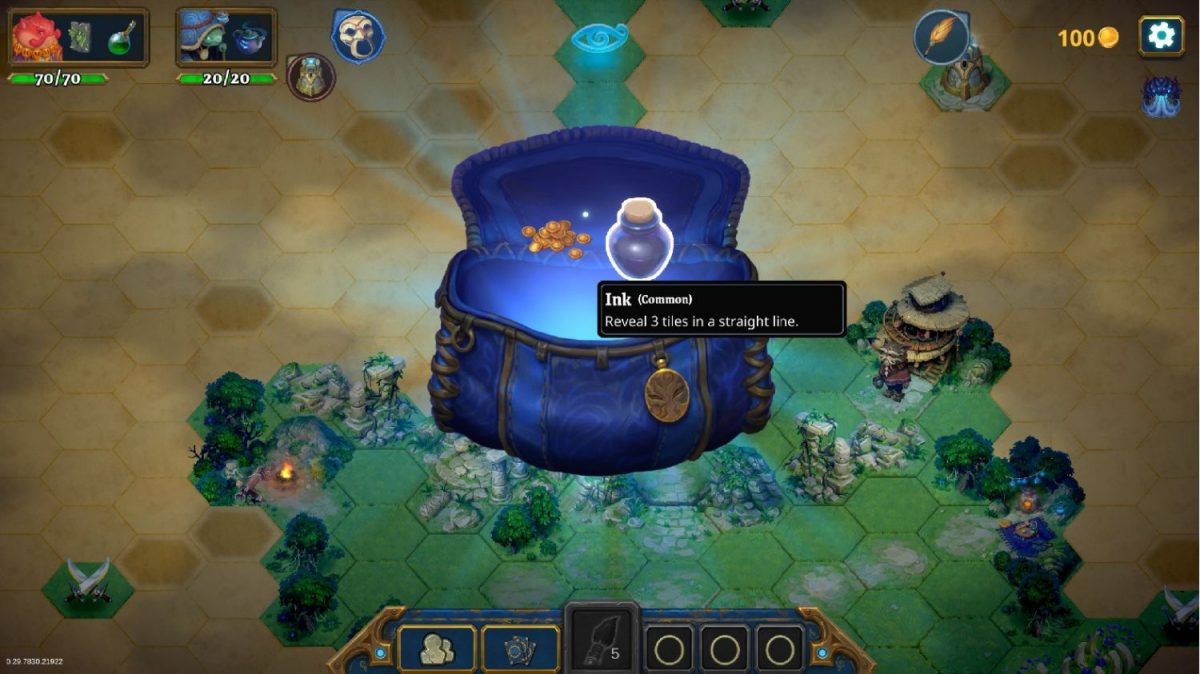
Unlike a predetermined path of challenges as seen in Slay the Spire and Monster Train, Roguebook has players traversing an overworld that opens up slowly depending on how many paintbrushes one has. To get even more paint brushes, players would need to defeat enemies dispersed on the overworld. Opening up the overworld gives players access to more cards, more events, more enemies, and even more frustration. Because paint brushes are relatively limited in nature and the spaces it can open up can be restrictive, opening up to map to empty squares can be disappointing.
This pretty much sounds like opening a Magic: The Gathering booster pack filled with only commons. Pretty much everything from pathing, card drafting, hero deck bonuses, enemies, and bosses are all random. While it adds some level of variety, it leads to extreme ends of pleasure and disappointment for each run. If the going is good, players will enjoy opening up to bonanza after bonanza of boons on the overworld making for an enjoyable run from the get go. While this might be refreshing for some, the added layer of randomness might be tedious and might make some want to drop a run instead of trudging through to the end.
This is actually where the fun begins. Once the right combination of cards has been attained (more on that in a sec), it’s actually very possible to create an infinite combo where the enemy can’t really do anything to withstand your heroes’ onslaught. Whether or not players actually can assemble the right set of cards boils down to what the game gives them when acquiring new cards. High defence combined with high damage outputs will become the norm if the stars align. It’s not extremely hard as each hero has primarily two forms of card play styles which define their moveset.
Unlike other deck builders, Roguebook encourages players to make their deck as big as possible. This is as opposed to keeping the deck small so that players can keep on drawing key, impactful cards. By expanding your deck, players will unlock even more bonuses which can add even greater synergy to the overall deck by hitting harder or having more health regeneration to go the extra mile. Rolling in the wombo-combo can make Roguebook extremely satisfying as players wipe the floor with their cards.
Here’s an example combination which was discovered. Playing as Seifer gives players access to NPC allies which deal damage without being affected by enemies. Seifer also has cards which allows him to increase the attack damage of his allies. Modifying a particular card allowed me to reduce its cost and return it to the top of the players drawpile each time it was played, allowing Seifer to repeatedly juice his ally to hit like a truck in excess of 100 damage every round. When bosses only have a max HP of about 300, it puts into context how broken Roguebook can evolve into.
If this sounds like Magic: The Gathering at its broken best, it most certainly is. Sadly, outside of that, it’s going to be a slog to the finish which takes the fun out of the game if players are unable to draft the right kinds of cards.
Once you’ve completed the game for the very first time, this is where the true end game begins. Before the start of the round, players are given the chance to make modifications to the core game itself which increase the run’s difficulty. This in turn gives more bonuses to help players unlock the heroes’ talent tree making subsequent runs slightly easier.
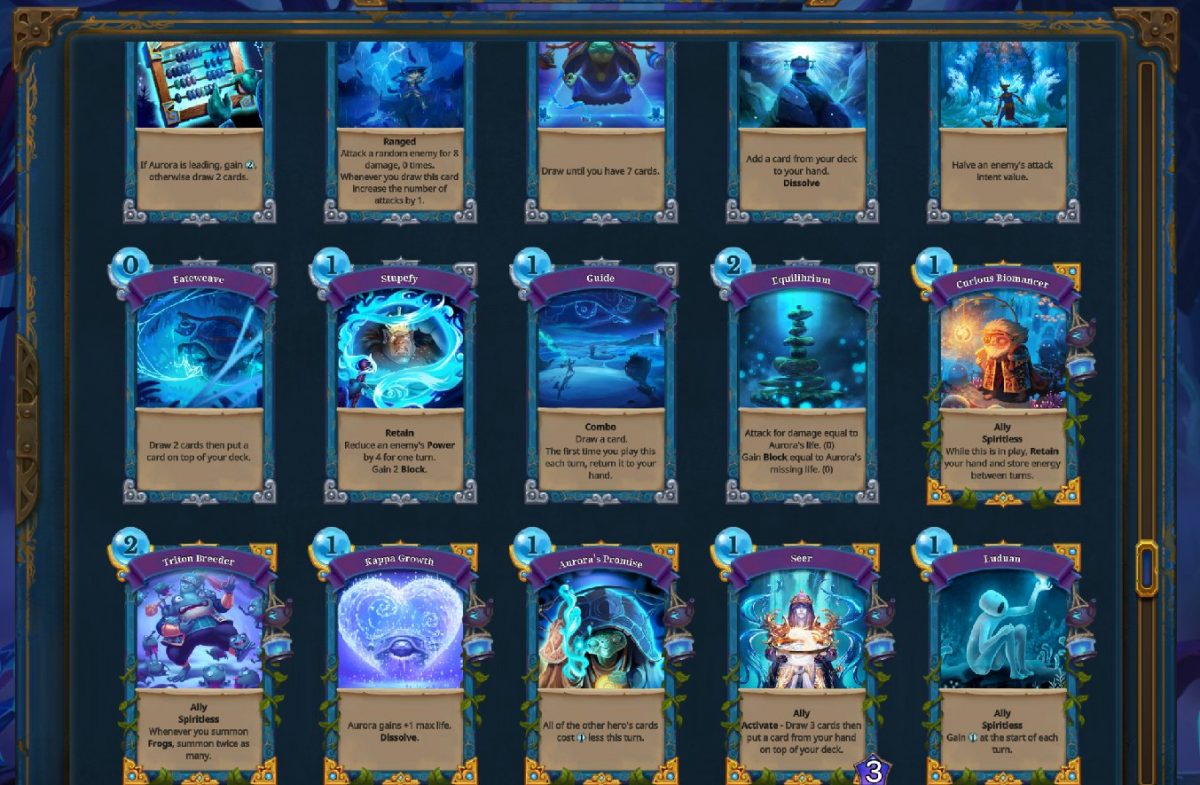
Quite a bit of effort has been invested into Roguebook ever since we last saw it in beta, with each run taking about 40 – 60 minutes, there’s a good amount of variance in the game to keep players coming back to explore more card and hero combinations. The animation and art in Roguebook does help it stand apart from the other games in the same subgenre but gameplay wise, Klei’s Griftlands has an edge when it comes to gameplay mechanics.
Overall, Roguebook is a solid entry into the roguelite / deck builder genre. While we wouldn’t say it has the most unique elements ever to be seen in the genre, its card combos can lead to an immense level of fun but most of the game does boil down to luck leading to big swings in enjoyment levels. There’s little in between, either your deck is a game winner or it meanders along as it labours through the game. In comparison to Slay the Spire and Monster Train, these two comparative titles allow players to often make it to the end game and create nail biting finishes, something that Roguebook seems to lack.
With so much randomness in the game, Roguebook does feel like opening multiple booster packs on a wide range of levels. Whether or not lady luck is on your side, is a totally different matter altogether.
GEEK REVIEW SCORE
Summary
A solid entry to the deckbuilding roguelike genre, Roguebook has a promising start but struggles to find balance with its cards.
Overall
7.4/10-
Gameplay - 8/10
8/10
-
Story - 7/10
7/10
-
Presentation - 7.5/10
7.5/10
-
Value - 7/10
7/10
Gerald currently straddles between his love of video games and board gaming. There’s nothing that interests him more than trying out the newest and fanciest gadget in town as well. He dreams of publishing a board game sometime in the future!

